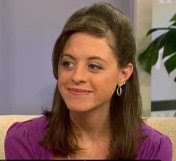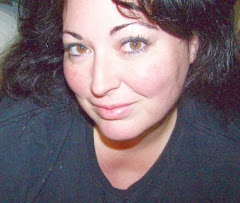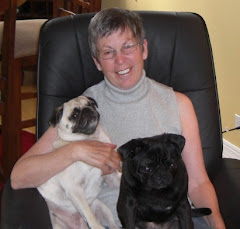Posted with Lauren's permission
By Lauren Burns
My name is Lauren and I am 26 years old. As a ‘grown up’ donor conceived person I feel it is my responsibility to give some perspective about the long term effects of donor conception. We, the children created from assisted reproductive treatment, are the real experts, but we are not often given a forum to express our views. I hope I will give would-be parents and potential donors some important information that they will take time to think over, and my story will be of interest to other donor conceived people, who may want to meet or network with people from a similar background.
The concept of egg and sperm donation, donors procreating with the intention of not assuming any responsibility or feelings towards the person they have helped create, is a curiously artificial construct conjured by the infertility treatment industry. It is the complete opposite of how parents normally feel towards their biological children. In the early days it was useful in helping clinics recruit donors, and for parents who wished to believe donor conception was truly a ‘cure’ to their own infertility, but what happens when the child refuses to accept that their biological parent is not merely a ‘nice man/woman’ who is inconsequential to their lives?
It is crucial to realise that the decision to use a donor to create a family results in life-long consequences for the child who is subsequently born. Every person I know who is donor conceived (about 15) has been affected by it. It is untrue to claim there are no real issues with donor conception, that as long as you tell the child the truth, and tell early, everything will be fine.
The modern advice is telling children early is the best option, and I agree, however it is important to note that children will not have a static response to being donor conceived, it will change throughout their lives. Young children tend to be very accepting of what their parents tell them, and hence often appear unperturbed by their story. It is not until these children gain the power of critical analysis, perhaps in early adulthood, that they may start question what occurred.
I personally know a 30-year-old donor conceived man who has known his status since early childhood. Initially he accepted it, until the birth of his own child when suddenly, as a father, he realised the importance of the biological link, and what the loss of his paternal kin had meant for him (and his daughter). He does not condemn his parents for their decision, but is now completely opposed to the practise of donor conception, and feels it has negatively affected his life.
The psychology of donor conception is complex because it asks the child to differentiate between the ‘social’ and the ‘biological’ aspects of parenthood. Historically there was never this schism, leaving our language unprepared for it. Thus, even the word ‘parent’ is loaded and ambiguous, so we are left with clunky terms such as ‘biological parent’ and ‘social parent.’
It is vital to think about the importance of the genetic link. Is it relevant or is it completely disposable? How important is it in informing our sense of self (looks, personality, interests) and sense of identity (feeling of belonging, similarities reflected in relatives, being part of a chain)? Parents should not think that if their child expresses longing for knowledge of a biological parent it reflects badly on their parental skills. In my experience my desire to know my genetic identity was actually independent of my relationship with my social parents, because no matter how good a parent they were, it was beyond their control to give me this knowledge.
Donor conceived children are generally smart and sensitive. They want to protect their parents. This often complicates the way they allow themselves to express their feelings about being donor conceived. They are generally especially sensitive about not upsetting the non-biological parent.
There is a lot of literature concerning the feelings of loss and grief felt by adoptees, associated with the denial of a close relationship with their biological parents. This is relevant, because from the perspective of the child, being donor conceived is like being ‘half-adopted.’
Infertility can mean mourning the loss of somebody who has never existed. However, choosing donor conception to overcome infertility can mean transferring the loss so that it is now the child who grieves, in this case for someone they have also never met, the missing biological parent.
When seeking information and/or counselling about becoming a donor or using assisted reproductive treatment, it is important to consider any biases of the source of information. Infertility treatment is an industry and private clinics are ultimately businesses. Although it is in their interest to adhere to medical guidelines, they also have a financial incentive to minimise or even trivialise adverse effects, in order to recruit egg and sperm donors, as well as attract consumers. As far as I am aware, in Victoria, no infertility treatment clinic has shown interest in tracking the long term welfare of the children created from their services, or (with the exception of the Royal Women’s) provided pastoral services to assist offspring dealing with the effects of being donor conceived.
In Victoria anonymous donation is now recognised as harmful to children and has been banned since 1998. However, donor conceived children will still grow up not knowing the identity of their donor during their formative years, and any relationship they pursue after the age of 18 will be retarded by this missing time.
Parents should question how they feel about making the decision, on behalf of their child, that they will be denied a close familiar relationship with one or both biological parents. Adoption was normally deemed the best solution to some crisis that meant the biological parents were unable to care for their child. I feel in this case the deliberateness of the decision to separate kin is significant.
I found out my biological father was a vial of frozen sperm labelled ‘C11’ when I was 21. It came as a complete shock. For me, the overwhelming impression of being donor conceived was powerlessness and lack of choice. I thought it was very unfair that the medical establishment had concocted the concept of ‘anonymous donor’ and this deal had been stitched up without my consent. I felt like the system had exploited my vulnerability by assigning my rights the lowest priority. Whenever I expressed the need that was driving me to search for my donor, I was reminded that I must abide by these decisions, made long ago, that I was never involved in.
I brooded over the news for about three years, not talking much, but thinking about it a lot. I found out that in Victoria, people born after 1988 have the right to apply for information about their donor, but because I was born in 1983 I do not qualify. I thought this terribly unfair because my need to know my genetic identity was just as real as somebody born after this arbitrary date. Despite this, I did find my donor, but I had to move heaven and earth to do it.
I reached a turning point when I met Narelle (a donor conceived woman) and eventually met up with members of an organisation called TangledWebs (www.tangledwebs.org.au). (The name comes from a poem by Sir Walter Scott, “O what a tangled web we weave, when first we practice to deceive.”) It was a huge relief to talk to people with a similar background to myself, who shared my view that donor conceived people have a basic right to information about their genetic identity.
I went public and had two newspaper articles published in The Age. It was stressful to ‘blow my cover’ and tell my story where I knew it would be read by an unknown number of friends, relatives and acquaintances. However the long-term effects have been very positive because I have freed myself from secrecy and received a lot of encouragement. The experience also taught me the power of personal stories in helping shape public opinion.
I met with key politicians regarding the Assisted Reproductive Treatment (2008) Bill. Sue Pennicuik (Greens) tabled an amendment to allow all donor conceived people to apply for information about their genetic identity, regardless of when they were born. This amendment was only defeated by five votes. (Hansard Legislative Council 4 Dec 2008 pg 50). Unfortunately, at the time we only knew a few donor conceived people who were willing to meet with politicians. Most politicians who voted on this amendment had never actually met and listened to the personal story of somebody who is affected by it.
I changed strategy. My mother remembered the name of her former treating doctor so I sent him a letter outlining my story. To my delight I wasn’t ignored. He suggested we meet, and gave me a background of his work in male infertility and donor conception programs spanning 25 years. I was flabbergasted to discover I was the first donor conceived person he had ever met! This highlights the huge disconnection between the medical focus on treating infertility as a ‘disease’ that can be ‘cured’ by prescribing donated eggs/sperm/embryos like medicine, unaware or unconcerned about the lifelong impact this may have on us, the human beings created from these treatments.
I asked if he would be willing to write to my donor on my behalf. He said he would have to think about it and consult with a colleague. A few months passed. I was in a tightly wound state. I felt a familiar feeling of powerlessness as the outcome now rested on the personal ethics of one person. One Thursday in early August 2009 I heard back. He had sent the letter. After this, things moved really quickly. The very next week I received a call from Kate from VARTA with big news. Firstly, I didn’t need to ever refer to my biological father as my donor. His name is Ben.
After exchanging letters and talking on the phone we arranged to meet. The day before, I discovered I would be meeting his children, my half-siblings. I was nervous, especially the night before and day of the meeting. As I approached the gate, Ben’s son called out “Lauren’s here!” in an excited voice and ran to greet me. Immediately I felt more at ease. I said hello to everyone and we sat down to lunch. I had a surreal moment as I looked around and realized I was surrounded by people who looked like me. I realized the clinics were wrong. We are family, at least in some sense of the word.
Finally I understand why people comment that my sister looks Swedish and why I am interested in flying and space. Ben and I share an interest in reading and literature, art, sports, napping, nature and the outdoors. After all my efforts in the media, law, and political lobbying, I was also gratified to discover that my paternal grandfather was a somewhat notorious agitator of the establishment.
I still have three missing half siblings, two boys born in Dec ’81 and July ’84 and a girl born in Aug ’81, all to separate families. I joined the pre-1988 voluntary register, but there were no matches. Have their parents even told them they are donor conceived? If they or their parents are reading this article, I want them to know that they can find me in the voluntary register. I am waiting for them.
Thursday, February 4, 2010
Lauren Burns 'donor' conceived perspective
Posted by whosedaughter
Subscribe to:
Comments (Atom)

.jpg)
.jpg)



.jpg)

